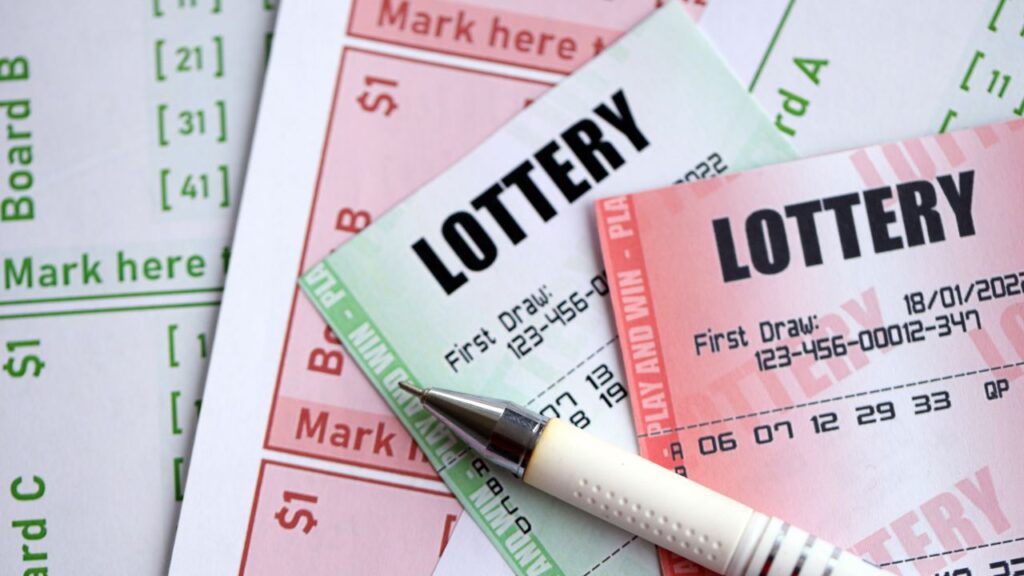You’ve just received an email or text saying you’ve won millions in a lottery you don’t even remember entering. Sound familiar? You’re not alone. Every year, thousands fall victim to lottery scams because they’re not just tricked—they’re manipulated. These scams aren’t just about fake prizes; they exploit your emotions using powerful psychological tactics like urgency, fear, and flattery. In this guide, we’ll break down five of the most common psychological tricks scammers use to deceive people into sending money or personal info—and we’ll show you exactly how to spot and avoid them. Armed with this knowledge and real-world examples, you can confidently protect yourself and your loved ones from lottery fraud.
Ready to boost your odds? Discover the best lottery prediction software trusted by savvy players.
🧠 Trick #1 – Creating Urgency to Force Snap Decisions
Scammers are masters at creating a false sense of urgency. You might receive a message saying, “You’ve won, but you must respond within 24 hours!” or “Claim your prize now or risk losing it forever!” These tactics are designed to short-circuit your logical thinking and rush you into taking action before you’ve had time to verify anything.
A real-world example? Many victims of email lottery scams report getting messages that say they must “verify identity immediately” to avoid disqualification—usually by paying a fee or sharing personal information. The goal is to make you panic, not think.
Urgency appeals directly to your emotions and bypasses your usual caution. That’s why it works. But if you feel pressure to act “now or never,” it’s time to hit pause. No legitimate lottery forces winners to respond within hours, and time-sensitive threats are a massive red flag. Breathe, double-check, and always verify before responding.
Want to play smarter? Explore the power of Lotto Champ’s winning system today.
🎩 Trick #2 – Pretending to Be Authority Figures

Scammers know that when someone claims to be an official, we instinctively lower our guard. That’s why impersonation is one of their favorite tactics. Fraudsters often pose as lottery executives, government officials, lawyers, or even representatives from well-known organizations like Mega Millions or Publishers Clearing House (PCH) to gain your trust quickly.
They’ll use forged letterheads, official-looking logos, and even spoofed caller IDs or email addresses to make it look like everything is legit. One common trick is a fake letter announcing a jackpot win with instructions to contact a “claims agent.” Sometimes, they even send phony checks to reel you in further.
These psychological cues—like uniforms, titles, and legal jargon—create illusion of legitimacy. But remember: real lottery organizations never reach out to winners unsolicited. Always cross-check names, email domains, and phone numbers through official channels. If you feel unsure, trust your gut and verify independently.
Curious if software can improve your odds? Try Lotto Champ for lottery predictions.
💥 Trick #3 – Using Fear of Missing Out (FOMO)
Scammers are masters at exploiting our fear of missing out—that gnawing worry that if we don’t act now, we’ll lose a once-in-a-lifetime opportunity. Messages like “Claim your prize before midnight!” or “This is your final chance to respond!” are designed to trigger urgency and cloud your better judgment.
You might see phrases like “Only a few winners selected” or “Exclusive payout waiting”, accompanied by countdown timers or bold, red text. These tricks tap into FOMO psychology, pushing you to act fast—often without verifying the source.
The truth? Legitimate lottery wins don’t expire overnight, and no real prize will vanish if you take time to think. To fight back, pause and reframe: ask yourself, “Would a real lottery rush me like this?” Take a breath, research the sender, and regain control before taking any action.
Give your number picks an edge with the trusted Lotto Champ program.
💌 Trick #4 – Personalizing the Scam to You

Scammers know that the more personal the message feels, the more believable it becomes. Instead of generic greetings like “Dear Winner,” they might use your actual name, location, or recent online activity to gain your trust. This level of personalization is no accident—it’s a deliberate psychological tactic.
Often, scammers scrape details from social media profiles, data leaks, or public records to craft messages that seem eerily specific. For example:
“Congratulations, James from Austin! Your ticket ending in 7265 was selected!”
These tricks make it feel like a real win meant just for you—but it’s a trap. Real lotteries don’t know your name unless you entered yourself, and they never reach out unsolicited with personal data.
Stay alert: be cautious of messages that use your details to add legitimacy. Cross-check any claims directly through official lottery websites before engaging.
Don’t leave your luck to chance—discover how Lotto Champ helps users win.
💸 Trick #5 – Exploiting the Sunk Cost Fallacy
Scammers often hook victims by asking for small, seemingly harmless fees upfront—processing charges, “taxes,” or verification payments. Once paid, the scam escalates. Each new request feels justified because you’ve already spent money, creating a mental trap known as the sunk cost fallacy.
This psychological bias convinces people to keep investing in a lie, thinking, “I’ve already come this far… I can’t stop now.” But scammers thrive on that logic. Victims have lost thousands of dollars this way, continuing to pay just to avoid feeling like it was all for nothing.
One real-world example involved a retiree who sent over $10,000 in fees over several months—convinced the jackpot was just one more payment away.
Recognizing this trap is key. Cutting your losses early is a smart and strong move. If a prize is real, it won’t require a payment upfront—walk away while you still can.
Start making smarter picks with this powerful lottery tool today.
🧾 Bonus – Red Flags That Instantly Signal a Lottery Scam
Lottery scams often follow predictable patterns—once you know the red flags, you’ll spot them faster. Common scam phrases include:
“You’ve been selected!”, “Immediate action required,” and “Just pay this small fee to claim your prize.”
Scammers will frequently:
- Demand payment upfront via wire transfer, prepaid card, or cryptocurrency
- Urge secrecy, warning you not to tell family or friends
- Use generic email addresses or unverifiable phone numbers
- Provide vague or fake references to official-sounding agencies
It’s important to remember: legitimate lotteries never require you to pay to receive a prize. If you didn’t enter, you didn’t win. Period.
If something feels off, report the scam to the FTC (in the U.S.), your national consumer protection agency, or platforms like the Internet Crime Complaint Center (IC3). Taking action helps protect others, too.
Serious about increasing your chances? Check out Lotto Champ’s advanced strategy.
✅ Conclusion
Lottery scams are more sophisticated than ever, but knowledge is your best defense. As we’ve explored, scammers use psychological tricks—urgency, fake authority, FOMO, personalized messages, and the sunk cost fallacy—to manipulate your emotions and judgment. Recognizing these tactics early can protect you and those you care about.
Stay skeptical. Ask questions. Double-check identities. And never pay to claim a prize you didn’t enter to win.
If you found this guide helpful, share it with friends and family. The more people know, the harder it becomes for scammers to succeed.
Knowledge is protection—be aware, stay alert, and help others avoid lottery scams before they become victims.
Want to play smarter, not harder? Check out this top-rated lottery number predictor that’s changing the game.

